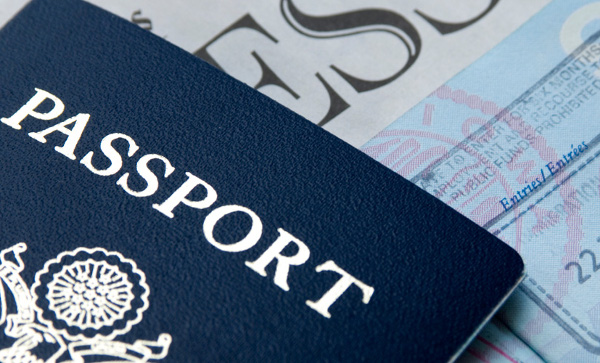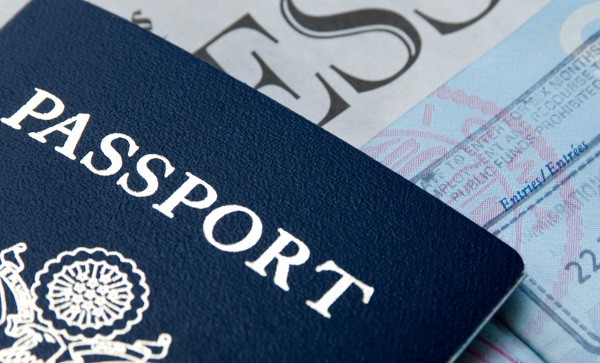

By: Elias Attia
Source: MuslimVillage.com
A proposal to strip Australians of citizenship will be discussed in the Federal Parliament this week. This proposal appears to have strong support within the Liberal Party and if passed, will be the 66th piece of anti-terrorism legislation since 2001.
Australian’s shouldn’t be surprised that another anti-terror law is being passed at this time. According to Professor George Williams from the University of New South Wales, the Howard Government passed a new anti-terror legislation every 6.7 weeks. This is a very short turnover period for drafting, debating and passing legislation.
Anti-terrorism laws are notorious for their “trust us” philosophy that does away with robust debate. Like the laws passed during the World Wars and the Cold War, these laws are driven by politics and fear, but not by expert advice.
Under this law Australians who are dual citizens can have their citizenship stripped away even without contesting the matter in court or seeing the evidence presented before them.
Strengthening ISIS
The proposed law’s intended effect is unclear to say the least. It does not prevent Australians from leaving to fight in foreign conflicts nor does it deter “advocating terrorism” and other similar offenses which already carry harsh sentences. Threatening to remove citizenship will not act as an extra disincentive since the handful of Australians fighting with ISIS do not want to return. As for those who turn their backs on ISIS, and would otherwise be seeking Australian government support to do so, their only options would be to continue fighting for ISIS or risk execution if they tried to escape.
Stripping individuals of citizenship without judicial oversight and without presenting evidence runs contrary to the rule of law. ISIS propagandists could easily use such laws to make a case to would-be recruits that Australian civil liberties and its “fair go” attitude do not apply to Muslims.
Security analysts are in agreement regarding similar laws where an individual is fighting for a foreign state that is at war with Australia. While there is no doubt that ISIS fighters must be dealt with, applying this type of law to ISIS affiliates would, in the mind of ISIS, acknowledge them as a state which is another major tactical error.
This flawed approach would create “stateless” individuals who despite having a second citizenship elsewhere, are unable to gain sanctuary there. Australia is not the only country at war with ISIS; roughly every country in the Middle East is. Thus stripping individuals of their Australian citizenship for supporting a non-state actor will perpetuate the necessity of the same or other non-state actors.
Unpredictable outcomes
The proposed legislation raises questions about what other crimes are severe enough for such treatment. Should the minister strip citizenship from Chinese researchers with access to Australian confidential technology, corporate fraudsters and murderers? Perhaps outspoken political opponents who are dual citizenship can also be targeted.
While at this juncture such questions may seem far-fetched, there are many cases where laws for one purpose have been abused for political ends especially after the passage of time. In the United Kingdom for example, anti-terrorism laws have been used to freeze the bank accounts operated by the Bank of Iceland.
Laws such as this have already caught the attention of local right-wing extremists who may very soon ask, “Why hasn’t this government used its powers to evict Muslims from Australia?” They have been asking politicians to do this for more than 20 years.
Though the proposed law has been limited to dual citizens, Ministers have hinted that it may apply to “potential dual citizens”. What this distinction does is to manufacture a two-tiered meaning of citizenship. For dual citizens, the rights of citizenship are no longer absolute. Even for Australian born citizens (who are children of migrant Australians), this law reasserts their foreignness and that their stay is subject to ministerial discretion. One unintended consequence may be that some dual citizens will renounce their secondary citizenship to assert their Australian-ness. This approach will impact on Australians who regularly do business overseas and may weaken our competitive advantage in several Middle Eastern investment markets.
There are also many questions about this law will affect other anti-terrorism laws. If Australians are barred from re-entry into our jurisdiction, or otherwise stripped of citizenship, some of our existing anti-terrorism laws might no longer apply to them.
Hypothetically, we could allow our citizens to return to face trial and then strip them of citizenship if they are convicted. But the act of withdrawing citizenship in this context leaves the following questions unanswered:
- On what terms will the second country accept our ex-citizens? Will they even know of our decision?
- Will our ex-citizens be allowed to return to visit their families?
- What happens to their existing personal and business assets in Australia?
- Are we obligated to ensure that the second country does not torture or persecute them if they decide to relocate there?
Rethinking Australia’s Anti-Terrorism Laws
Australian citizens’ are Australia’s responsibility. It is neither responsible nor reasonable to simply foist those of them who are delinquent on other states and assume that they have the will or indeed capacity to effectively deal with them. Neither should we assume that this policy will not cause further destabilisation in the Middle East.
Australia needs a wholesale rethink of its approach to fighting terrorism and extremism. Our 14 year old approach of minimising civil liberties, blaming communities, and now dodging responsibility has failed and continues to make us less safe.
Australia must de-emphasise ‘securitisation’ as a model to understanding extremism. This model manufactures threats surrounding issues that can be addressed far more cheaply and effectively with sensible youth and community support programs, urban planning, and economic policies.Additionally extremism researchers have suspected that diminishing civil liberties is a pull factor for extremist movements.
The Government must be steadfast in addressing the shortcomings on its end. These include the lack of coordination and information sharing amongst government agencies, the lack of a strong “Australian Foreign Policy” independent of other Western countries, the lack of cultural competence within government bodies/Police, and a weakening community sector.
Ensuring this new law does not come into effect is important if we are to become serious about addressing the problem of ISIS which is only exacerbated by the serious flaws inherent in our current anti-terrorism strategy.
Elias Attia is a Sydney based solicitor, researcher and community development consultant.



